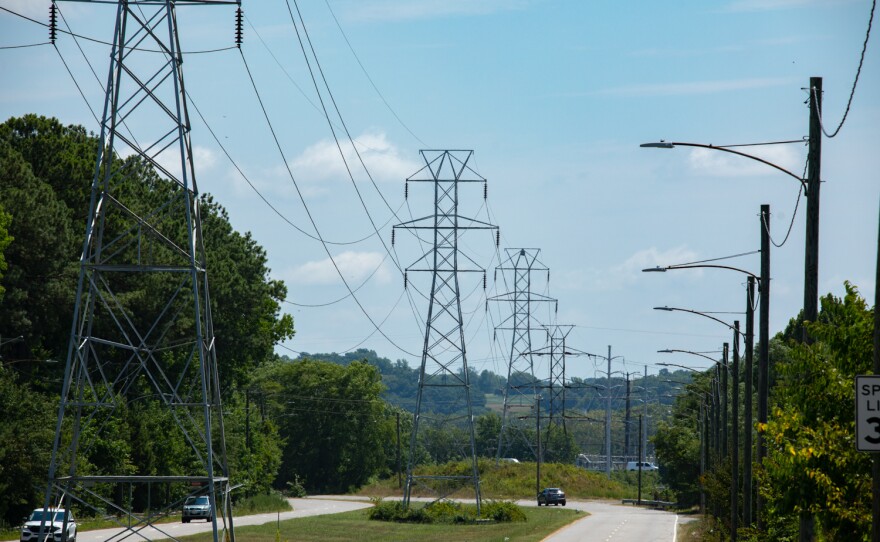Virginia's Department of Environmental Quality is considering a measure that would allow data centers in Loudoun County to more frequently draw power from on-site emergency diesel generators this spring and summer.
The proposal seeks to reduce stress on the transmission system, which moves high-voltage electricity long distances from power plants to end users and localized distribution systems.
Public comment on the matter was open at the DEQ regional office in Woodbridge on Thursday. The Data Center Coalition, an industry group, has requested DEQ withdraw the proposed variance.
In a letter, DCC President Josh Levi wrote “there are important and unresolved technical, federal regulatory, and operational challenges with this variance. Due to these issues, no DCC member has indicated they would use the variance.”
According to a Loudoun County report, Dominion Energy began notifying companies in July 2022 that new data centers in eastern Loudoun County would not receive electrical connections due to severe transmission constraints there. Some new facilities are now receiving power, but Dominion expects a limited expansion of its services in the area until the expected January 2026 completion of transmission projects.
DEQ says it expects the time between March and July of this year will be a period of “potentially acute stress” on transmission assets in the area.
During that time frame, the proposed variance would temporarily allow on-site emergency generators to operate at data centers during a "Maximum Generation Emergency/Load Management Alert."
PJM Interconnection — an organization that oversees long-distance electricity transmission and a regional wholesale electric market for its 13 member states and Washington, D.C. — manages those alerts.
According to Piedmont Environmental Council President Chris Miller, that means the variance would apply in nonemergency situations.
“DEQ was proposing to go beyond the federal Clean Air Act in permitting the use of backup diesel generators to deal with the energy supply problem,” Miller said. “Despite the fact that Loudoun and Northern Virginia are ozone nonattainment areas, and there are significant at-risk populations.”
Miller and his group contend that PJM’s alerts — which are sent out in anticipation of emergencies, rather than during — do not provide justification to breach federal pollution limits.
Areas in nonattainment don’t meet the Environmental Protection Agency’s standards for air quality. The ozone standards were last set in 2015.
Natalie Pien is a Loudoun County resident who serves on the boards of multiple environmental groups, including PEC. Pien said Northern Virginia localities moved too quickly to bring data centers online.
“When localities look at data centers, all they see are dollars,” she said. “They are not informed of all the impacts.”
Pien said the state needs to offer more support in understanding the environmental and electrical implications of the facilities. An effort to study data centers failed in the General Assembly this year.
While data centers have become ubiquitous in much of Northern Virginia, Chesterfield County is trying to get in on the action, too. In 2019, it announced the lowest tax rate for data centers in the state at 24 cents; other localities have since matched that.
In a statement to VPM News, Chesterfield Economic Development Director Garrett Hart said the transmission problems are unique to Northern Virginia, and that the Richmond region’s grid is very different.
Loudoun County officials did not respond to a request for comment on this story by publication time.
Public comment on the Loudoun County variance is open until April 21.



